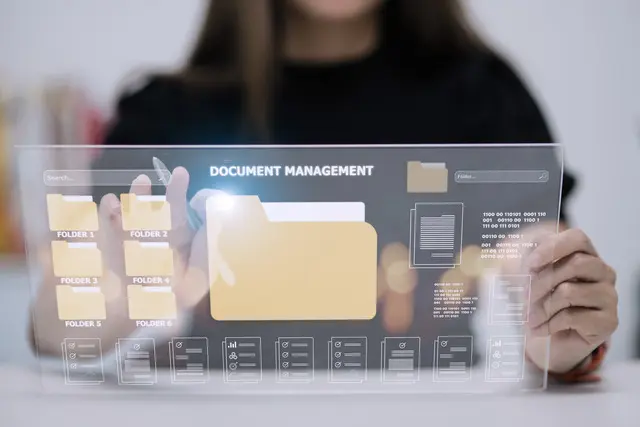Embracing Payment Processing Automation: A Lifeline for Supply Chain Efficiency
In the fast-paced and intricate world of supply chain management, the timely and accurate processing of payments is paramount for ensuring seamless operations and customer satisfaction. However, traditional payment processing methods are often manual and error-prone, leading to delays, inaccuracies, and a drain on resources.
Payment Processing Automation: A Game-Changer
Payment processing automation, powered by advanced technologies such as Python, AI, and cloud-based solutions, offers a transformative solution to these challenges. By automating repetitive and time-consuming tasks, businesses can streamline their payment processes, enhance accuracy, and free up valuable human resources for more strategic initiatives.
Benefits of Payment Processing Automation
- Reduced Costs: Automation eliminates the need for manual labor, reducing operational expenses and improving cost efficiency.
- Improved Accuracy: Automated systems minimize errors associated with manual processing, ensuring the accuracy of payment data and accounting records.
- Increased Efficiency: Automation speeds up payment processing, reducing turnaround times and improving overall supply chain efficiency.
- Enhanced Customer Satisfaction: Automated payment processing ensures timely and accurate payments, leading to improved customer satisfaction and loyalty.

Python, AI, and Cloud: The Trinity for Payment Processing Automation
Python: The Orchestrator of Unattended and Attended Bots
Python’s versatility and extensive library ecosystem make it an ideal choice for developing both unattended and attended bots for payment processing automation.
Unattended Bots: Python-based unattended bots can be programmed to perform repetitive tasks without human intervention. These bots can automatically reconcile invoices, verify payment details, update accounting records, and generate receipts.
Attended Bots: Attended bots, also built with Python, assist human workers in completing tasks. They can provide real-time guidance, automate data entry, and handle exceptions. The customization capabilities of Python allow for tailored attended bots that seamlessly integrate with existing workflows.
Cloud Platforms: The Ultimate Orchestrators
Cloud platforms offer a comprehensive suite of features and capabilities that surpass traditional RPA/workflow tools. They provide:
- Scalability: Cloud platforms can handle high volumes of transactions and scale up or down as needed.
- Reliability: Cloud platforms offer high availability and redundancy, ensuring uninterrupted payment processing.
- Security: Cloud platforms employ robust security measures to protect sensitive payment data.
AI: Enhancing Accuracy and Handling Edge Cases
AI techniques can significantly improve the accuracy and efficiency of payment processing automation.
- Image Recognition: AI can process scanned invoices and extract data accurately, eliminating manual data entry errors.
- Natural Language Processing (NLP): NLP can analyze remittance advices and identify key payment details, such as invoice numbers and amounts.
- Generative AI: Generative AI can create custom reports and summaries, providing valuable insights into payment trends and patterns.
By harnessing the power of Python, AI, and cloud platforms, businesses can unlock the full potential of payment processing automation, driving efficiency, accuracy, and customer satisfaction.

Building the Payment Processing Automation with Python and Cloud
Step-by-Step Automation Development
1. Data Extraction:
* Use Python libraries like OpenCV for image recognition to extract data from scanned invoices.
* Leverage NLP techniques to analyze remittance advices and identify key payment details.
2. Invoice Reconciliation:
* Develop Python scripts to compare extracted invoice data with existing records in the accounting system.
* Use cloud platforms for data storage and processing to handle large volumes of invoices efficiently.
3. Payment Verification:
* Integrate with payment gateways using Python to verify payment details and ensure funds availability.
* Utilize cloud-based security measures to protect sensitive payment information.
4. Accounting Updates:
* Automate accounting updates using Python scripts to post payments to the appropriate accounts.
* Leverage cloud platforms for data storage and processing to maintain a centralized and secure accounting system.
5. Receipt Generation and Confirmation:
* Use Python to generate customized receipts and payment confirmations.
* Integrate with email or messaging services to send notifications to customers.
Data Security and Compliance
- Implement robust encryption and access controls using Python and cloud security features.
- Ensure compliance with industry regulations and standards, such as PCI DSS.
Advantages of Python over No-Code RPA/Workflow Tools
- Customization: Python allows for tailored automation solutions that meet specific business requirements.
- Flexibility: Python can handle complex data structures and edge cases that may not be supported by no-code tools.
- Scalability: Python-based automations can scale up or down to meet changing business demands.
Algorythum’s Approach
Algorythum recognizes the limitations of off-the-shelf automation platforms and takes a Python-based approach to payment processing automation for several reasons:
- Client Dissatisfaction: We have witnessed client dissatisfaction with the performance and inflexibility of pre-built RPA tools.
- Superior Performance: Python-based automations offer superior performance, handling high volumes of transactions efficiently.
- Tailored Solutions: Our Python-based approach allows us to deliver customized solutions that meet the unique needs of each client.

The Future of Payment Processing Automation
The future of payment processing automation holds exciting possibilities for further enhancing efficiency and accuracy.
- Blockchain Integration: Integrating blockchain technology can provide secure and transparent payment processing, reducing the risk of fraud and errors.
- Machine Learning: Machine learning algorithms can analyze payment patterns and identify anomalies, enabling proactive fraud detection and prevention.
- Cognitive Automation: Cognitive automation, powered by AI, can automate complex decision-making processes, such as invoice approval and payment routing.
Subscribe and Connect
Stay up-to-date with the latest trends in automation by subscribing to our blog. Contact our team today for a free feasibility analysis and cost estimate for your custom payment processing automation requirements. Together, we can unlock the full potential of automation for your supply chain.

Algorythum – Your Partner in Automations and Beyond
At Algorythum, we specialize in crafting custom RPA solutions with Python, specifically tailored to your industry. We break free from the limitations of off-the-shelf tools, offering:
- A team of Automation & DevSecOps Experts: Deeply experienced in building scalable and efficient automation solutions for various businesses in all industries.
- Reduced Automation Maintenance Costs: Our code is clear, maintainable, and minimizes future upkeep expenses (up to 90% reduction compared to platforms).
- Future-Proof Solutions: You own the code, ensuring flexibility and adaptability as your processes and regulations evolve.









